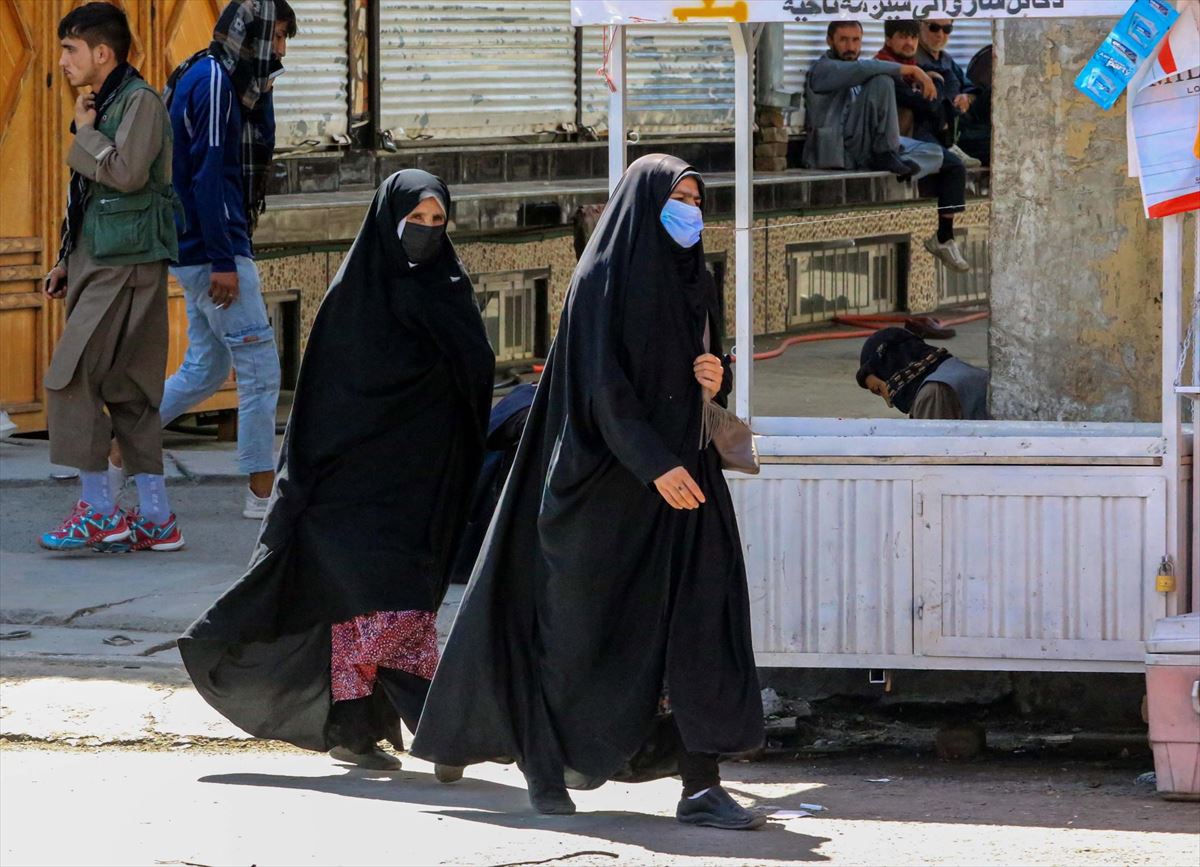The Taliban have imposed numerous restrictions that violate women’s rights, while the humanitarian and economic crisis of the population is exacerbated by the lack of support from the international community.
Despite the fact that in the Doha agreement the taliban they pledged to respect human rights after the withdrawal of US troops, the return to power of fundamentalists two years ago guessed the end of the profits made by women over the past two decades.
By denied access to education to the most recent order measure the dismissal of those who do not wear a veil in their workplacethe Taliban have imposed a plethora of restrictions that violate women’s rights, while the humanitarian and economic crisis of the population is exacerbated by a lack of support from the international community.
The rights activist Rafiq mine has assured in statements to EFE news agency that in various countries of the world they are “on commemorate August 15 as Black Dayand the Doha Agreement as black contracts between the US and the Taliban”.
Women targeted by the Taliban
The rise of the Taliban was accompanied by the first ban on women: secondary education. Afghanistan is today the only country in the world to ban female education.
The right of veto on education was extended last December until university and higher institutions. Added to this was the ban on praying in mosques, studying in private institutions and conducting religious studies in mosques.
In addition to education, women they also cannot work in NGOs, or in beauty salons, or going out without their face uncovered, or going on long journeys without the accompaniment of a male relative.
Behind these and other restrictions, such as banning women and girls from visiting theme parks or playing athletic sports, is the almighty Ministry of Propagation of Virtue and Prevention of Vicewhich replaces the Ministry of Women’s Affairs set up by the deposed government.
Institutions that are not very inclusive and have no women
Women are not represented in the government of the fundamentalists either he stripped them of the institutionswith the exception of some functions, such as passport controls, airports and hospitals.
According to several official reports, women represented 37% of the Afghan parliament and between 28 and 30% of government officials before the Taliban took Kabul.

poverty tort
The ban on working in NGOs and beauty salons affected thousands of female-headed families who depended on their income to survive in poverty-stricken Afghanistan.
That is what the United Nations Development Program (UNDP) predicted in September 2021 97% of the Afghan population was at risk of falling below the poverty line unless an urgent response from international organizations is launched.
For its part, the World Health Organization (WHO) estimated that by 2023 about 875,000 Afghan children and 840,000 pregnant and nursing mothers could suffer severe acute malnutrition.
Also earlier this year, the United Nations Office for the Coordination of Humanitarian Affairs (OCHA) warned 28.3 million peoplethe equivalent of two-thirds of the population, “they need humanitarian aid to survive”.
fewer human rights
Despite warnings from various international organizations, the Taliban continued to impose measures against women, over the past two years has made sending humanitarian aid more difficult for the reconstruction of Afghanistan.
The government of the fundamentalists banned music and instructed men to grow beards and stop wearing tiesan outfit that he says symbolizes the cross of the Christian religion.
Meanwhile, female media workers were forced cover your face and banning women working on movies or series.
Source: EITB
I’m Wayne Wickman, a professional journalist and author for Today Times Live. My specialty is covering global news and current events, offering readers a unique perspective on the world’s most pressing issues. I’m passionate about storytelling and helping people stay informed on the goings-on of our planet.



